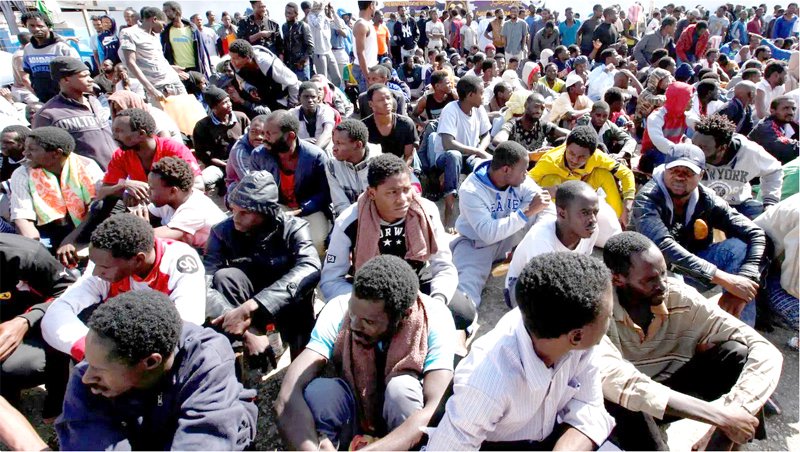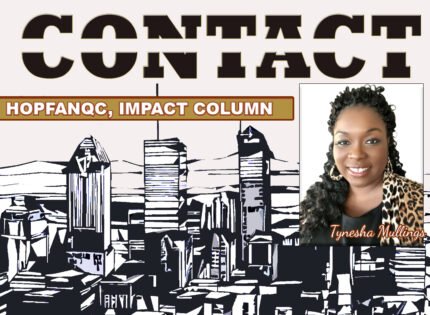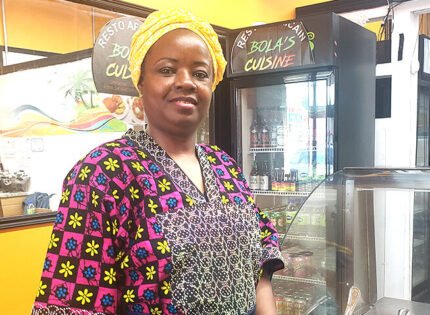
Nothing is more heart breaking for a parent than the inability to provide for, or protect their children. These are the main motivating factors for many African immigrants to go to Europe, by hook or crook.
Increasing instability, poverty, insecurity and even drought are the main factors for many to leave Africa with the hope that Europe will be their saving grace. So when the option to squeeze on the back of an intercontinental ship or small boat presents itself, they take it.
The Mediterranean crossing remains the deadliest mode of migration worldwide. People are four times more likely to die than last year, according to the International Organization for Migration (IOM), because there are fewer humanitarian rescue vessels at sea.
Most depart from Libya, but they originate from various countries across the continent such as Cameroon, Cote D’Ivoire, Senegal, Somalia, Djibouti and many other countries.
But to reach North Africa they travel for days under harsh desert weather conditions, suffering abuse from human smugglers and criminal networks, parting with huge sums of money in the process for the journey.
Unfortunately, huge numbers get stranded in transit countries, forcing some to return to their countries of origin.
Those who manage to reach Europe do so on life rafts or overloaded boats, paying $3,000 to $5,000 per person per trip. Many others die trying. An estimated 2,275 died or went missing crossing the Mediterranean in 2018. In total, 139,300 refugees and migrants arrived in Europe.
Many would say that risking their lives is better than what they are escaping from.
Although the number of migrants making the Mediterranean crossing decreased in 2018, it was not due to a lack of trying. Many boats are being intercepted as security is increasing at the ports.
Throughout 2018, there have been significant changes to the (pattern of) routes taken by refugees and migrants heading to Europe.
For the first half of the year, more people arrived in Greece than Italy or Spain in the second half. However, the primary entry point became Spain as more and more people attempted the perilous journey across the Western Mediterranean.
On routes from Libya to Europe, one person died at sea for every 14 who arrived in Europe – a sharp rise on 2017 levels. Thousands more were returned to Libya where they faced appalling conditions inside detention centers.
For many, setting foot in Europe was the final stop of a nightmarish journey during which they faced torture, rape and other forms of sexual assault, and the threat of being kidnapped and held for ransom.
Recently, a man fell from an air plane en route to the U.K from Kenya, where it is alleged that he was in the baggage compartment with food and drink for the eight hour journey, hoping to find greener pastures when he arrived at his intended destination. It was a dream that never materialized.
But why, how bad can it be that an expectant mother would be willing to squeeze onto a boat with her two- year-old child? Just what is the promise of Europe?
According to the IOM the vast majority of African migrants heading to Europe via the Mediterranean are from Eritrea (fleeing repression and compulsory military service), Somalia (escaping extreme poverty, political instability and insecurity), and Sudan (fleeing armed conflict).
Others topping the migration traffic list include Nigeria, Gambia, Ivory Coast, Guinea, Mali, Senegal, and to a lesser extent, Ghana, in that order, all of whom are fleeing impossible economic conditions, civil wars and religious persecution.
Although Africa isn’t a large contributor to the environmental degradation it is suffering the consequences. With the changing climate patterns farmers can no longer live off their land with droughts and floods constantly plaguing them.
And they feel they are damned if they do and damned if they don’t. So most of them do… They take the hellish Mediterranean journey even though there is a chance they might die, they take a chance knowing they could also live, because what is certain for them is if they remain in Africa they will certainly die.
















